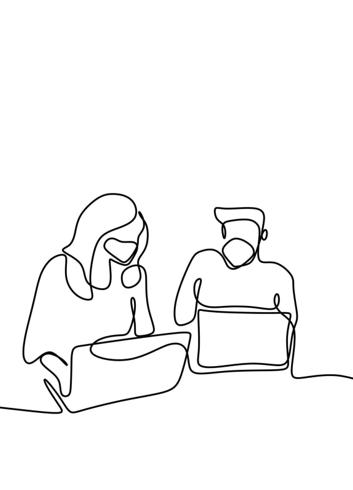
Olympic Games 2024: a social and solidarity economy at the heart of the project
The 2024 Olympic Games are intended to be responsible as they carry a strong environmental ambition. The campaign of the city of Paris to obtain the organisation of the Olympic Games based itself on a commitment to sustainability when it comes to its physical construction. These Games have the potential to redefine the public works sector which, as reported by the UN Environment Program, is the main emitter of pollution and waste.
The construction sector has an essential role to play in the ecological and energy transition. Therefore, it is important to rethink the methods of construction. The Olympic Games represent a real hope in this area which could pave the way for a metamorphosis of the building and public works sector (BTP as it is known in France).
The challenges of the BTP in Ile-de-France: a necessary change
The Ile-de-France Building and Public Works sector is a key player in the energy transition. Nearly one in five construction workers is from the Ile-de-France region and one in four companies are based in Paris. Construction is responsible for 50% of greenhouse gas emissions in the region and is the largest producer of waste. In 2014, it produced 227.514 million tonnes nationwide. Construction is, therefore, an essential sector of the French economy but is also at the heart of energy issues and waste management.
In Ile-de-France, housing also plays an important role due to its residential parks, which are the largest in the country. in 2013, Ile-de-France had over five million primary residences. However, the Ile-de-France residential parks perform badly when it comes to energy efficiency as two out of three dwellings are considered to be “energy-intensive” or “very energy-intensive”.
The need to lead the construction sector towards adopting increasingly sustainable practices emerged in the 2010s. The concept of “sustainable building” is developing and it brings together activities that contribute to reducing the environmental impact of a building, the guarantee of a safe working environment for professionals, health and comfort insurances that include economic sustainability, and a holistic approach to the infrastructure in order to maintain its life cycle.
The construction industry has undergone many changes with ambitious legislation aimed at significantly reducing residential greenhouse gas emissions and energy consumption.
The infrastructure at the heart of the sustainability of the games: towards a sustainable ecological and societal transformation
The 2024 agenda for the organisation of the Olympic Games is based on major commitments geared towards sustainable construction. The Games are heavy consumers of construction as each edition requires the creation of infrastructure and sport venues that can bring together athletes from all over the world. Although construction is at the heart of its organization, the long-term usefulness of the buildings have been questioned, and the lack of environmental and social considerations has been at the heart of many scandals. The Paris Games could challenge this paradigm by opting for a more sustainable approach.
For 2024, a budget of 3.2 billion euros has been allocated to the organisation of the games in terms of construction. This budget was designed around ambitious commitments based, in particular, on the inclusion of Social and Solidarity Economy (ESS) companies. This makes the Games a catalyst for sustainable construction.
At the heart of the 2024 Olympics sustainability model is the goal of thoughtful construction. These games wish to break with a past stained by infrastructures designed solely for the Olympics by proposing projects that meet the long-term needs of territories and populations. The construction is centered around being reversible which aim at making the Games only a temporary objective before being used sustainably. This unprecedented approach to the Games is based on the ESS market, which has been allocated a quarter of its budget, and demonstrates the lasting commitment made by the organization.
Paris 2024 wants to build sustainably by limiting new constructions as much as possible. Upgrading is at the heart of the project in order to rehabilitate, renovate and/or transform already existing venues for the Games. Only two venues will be entirely constructed for the occasion.
The social and solidarity economy in the spotlight for the organization of the Games
The 2024 Olympic Games have made strong commitments to invest in social and solidarity companies in the construction sector. The organising committee has decided to open public works contracts to ESS players giving them the chance to access a market hitherto reserved for French construction giants. In order to promote the success of ESS companies on the public markets, Paris 2024 has joined forces with Maison des Canaux to launch ESS 2024. This informative platform mobilises and supports ESS players so that they are at the heart of the organisation of the Olympic Games and can directly benefit from its economic opportunities. As a guarantee of success, 15% of the Paris 2024 markets include at least one ESS player and 95 ESS companies have already won or are part of a group holding a 2024 Olympics market.
The Games also carry a strong social ambition which is marked by the adoption of an Integration Charter for employment and territories in order to promote the integration of vulnerable groups and offer market access to all companies in the ESS. As such, 10% of the construction working hours are reserved for professional integration.
Paris 2024 is a good example of the innovation shown by the construction sector in France to rethink its ecological footprint. Construction is essential to the French economy and, therefore, bears a strong responsibility in terms of the energy and ecological transition. Reducing the environmental impact of construction, complying with ambitious legislation to reduce greenhouse gas emission and promoting social inclusion are all necessary changes to which the 2024 Olympic Games have committed to. Their strong environmental ambition has the potential to revolutionise sustainable construction in France and to promote a sustainable model of the Olympic Games at the international level.
BIBLIOGRAPHY
Apur (2021). Les Jeux de Paris 2024, accélérateurs d’innovations durables pour la logistique urbaine.
Arene Energie Climat (2017).- Les acteurs de l’ESS au service de la transition écologique porteurs d’innovation sociale .
Avise (2016). Bâtiment durable : des opportunités pour l’ESS en Île-de-France.
CRESS IDF (2020) – Les structures de l’Économie Sociale et Solidaire en Île-de-France, des acteurs de la Transition Écologique et Énergétique – État des lieux.
ESS 2024 (2021). “ESS 2024 – La plateforme solidaire”.
Patrigeon, C. (2021). Île-de-France : le BTP compte de plus en plus de TPE mais sa sortie de crise est incertaine. Batiactu.
Paris 2024 (2021). L’ESS, terreau d’avenir avec Paris 2024.
RESE (2016). Bâtiment durable : Des opportunités pour les acteurs franciliens de l’économie sociale et solidaire.





Leave a Reply